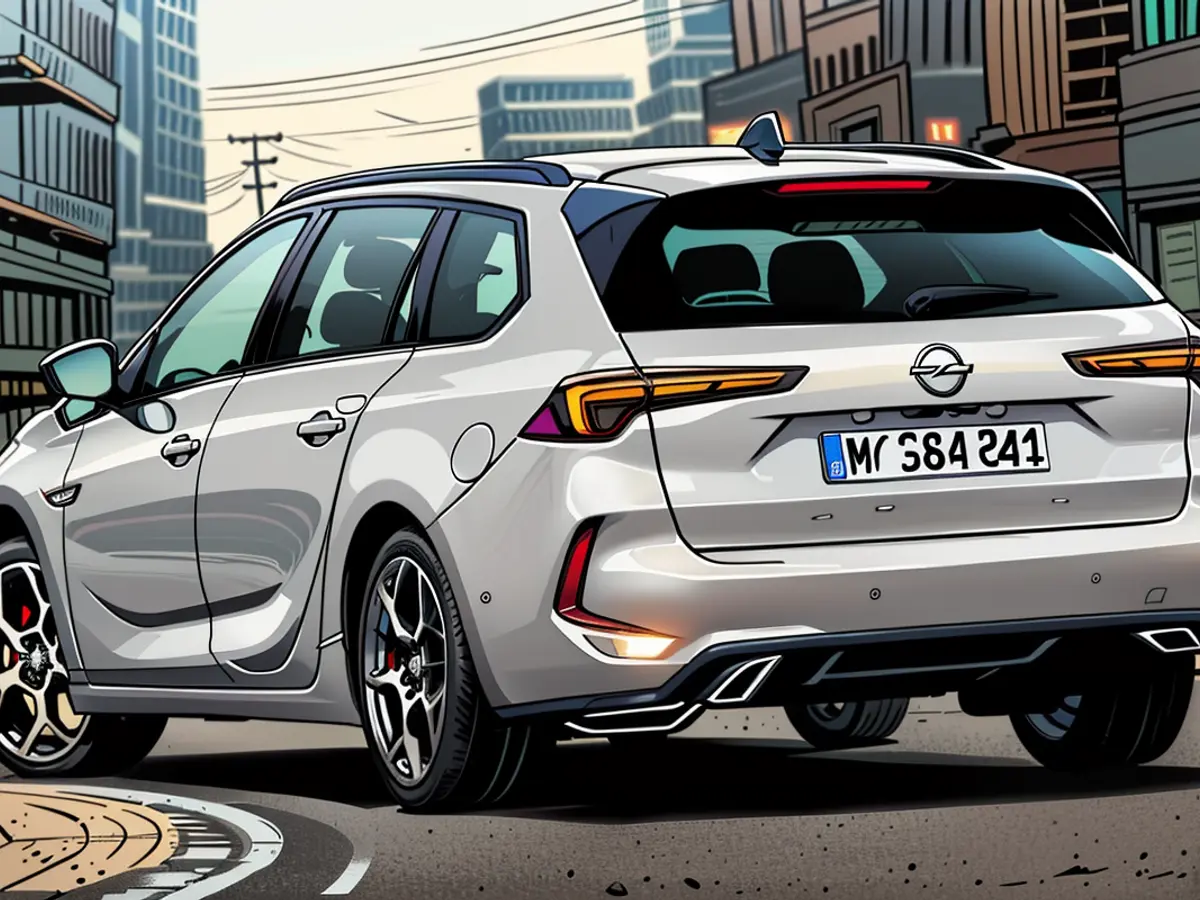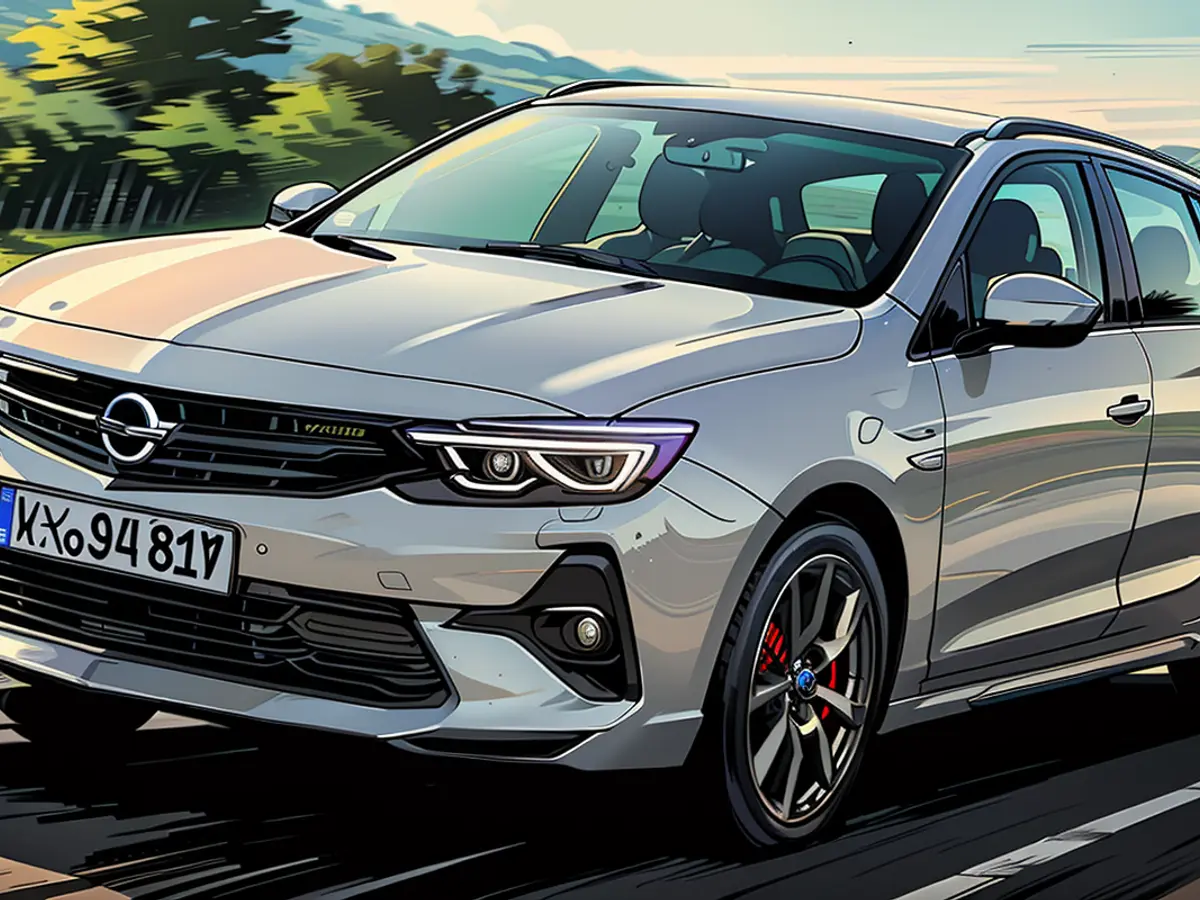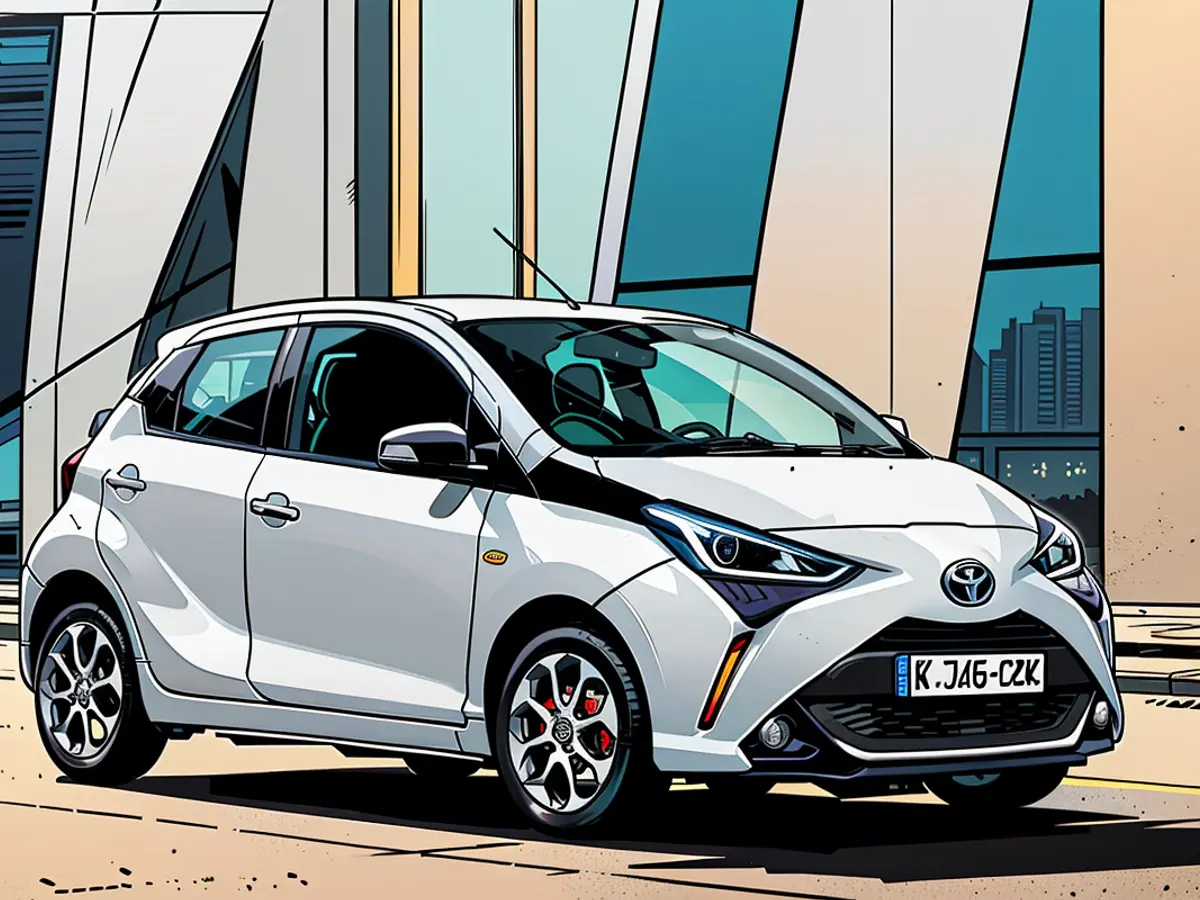Opel Astra Estate Hybrid: Fuel Economy Equivalent to a Diesel Engine's Efficiency
In highway operation, the fuel-saving potential of most hybrid gasoline vehicles tends to be low. However, the Astra Sports Tourer Hybrid bucked this trend, performing just as efficiently as a diesel in all driving scenarios, even managing a range of 1000 kilometers.
Two years ago, Opel introduced the Astra Sports Tourer with a variety of powertrains, but the hybrid was missing from the lineup. This changed last spring when Opel introduced the hybrid version, which combined electric and sporty driving, offering remarkable fuel efficiency.
First Impressions
The new Astra's exterior design is familiar, with a stylish appearance that manages to be unpretentious despite its practical focus. The interior is clean and the variable rear seats can accommodate between 608 and 1634 liters of luggage. The drawback is the limited knee room in the rear for a car of its size. The driver's seat with the AGR seal provides a comfortable ride for long trips.
On the Road

Hybrids are often not particularly sporty or fuel-efficient on highways. But the Astra MHEV proved to be an exception, consuming 5.5 liters during a long drive at 130 km/h, and even less (5.1 liters) on a tour through Holland at lower speeds. In city traffic, the 4.64-meter-long station wagon can be driven with less than five liters, and sometimes even under four liters. The official WLTP value of 4.9 liters per 100 kilometers is achievable, giving a range of 1000 kilometers a realistic possibility.
The three-cylinder hybrid might suggest a rough engine with modest acceleration. However, the 100 kW/136 PS strong gasoline engine, combined with a 48-volt E-machine integrated into a 6-speed dual-clutch transmission, delivers powerful and smooth, although not entirely smooth, acceleration. The 1.5-ton car can accelerate from 0 to 100 km/h in 9.3 seconds, with a top speed of 210 km/h. The regeneration is strong for a mild hybrid, allowing the car to sometimes come to a stop without braking at red lights. In city traffic, short electric-only drives are also possible, accompanied by a noticeable electric hum. While some might find this annoying, others might find it "electrically cool." The transitions can sometimes be a bit jerky when the combustion engine joins in after short electric phases.
Costs
The Astra Sports Tourer Mild Hybrid (MHEV) is frugal in terms of fuel consumption, but it requires a higher investment, with a purchase price of around 38,000 euros. This is partly due to the fact that the Astra Hybrid is only available from the middle equipment level GS, which includes features such as a two-zone climate control system, infotainment system, adaptive cruise control, heated steering wheel, rearview camera, and the comfortable and recommended AGR seats. Additionally, the hybrid powertrain with automatic transmission is included. The Ultimate equipment package costs an additional 4,000 euros, but includes features such as AGR sports seats, panoramic sunroof, head-up display, charging tray, and IntelliLux headlights, making it a worthwhile investment.

Compact vans with mild and full hybrid powertrains are still available. The biggest competitor remains the Golf Variant, which the VW group also offers as a technical sibling, the Skoda Octavia or Seat Leon ST. Other classics include the Ford Focus Estate and the Hyundai i30. Some are offered as mild hybrid petrol engines at significantly lower entry prices than the Astra MHEV.
In conclusion
Those who are hesitant about pure electric powertrains will find an efficient alternative in Opel's MHEV powertrain without range restrictions. While it still primarily runs on petrol, it integrates electric drive technology in a consumption-reducing and convincing manner.
Opel Astra Sports Tourer Hybrid - technical specifications

- Fifth-generation compact estate with five seats
- Length: 4.65 meters, width with exterior mirrors 2.06 meters (without exterior mirrors: 1.86 meters), height: 1.47 meters, wheelbase 2.73 meters, boot volume: 597 to 1634 liters, payload: 563 kg
- 1.2-liter three-cylinder turbo petrol engine with 100 kW/136 PS, maximum torque 230 Nm at 1.750 rpm, with 48-volt electric 6-speed dual-clutch transmission, front-wheel drive, Vmax 210 km/h, 0-100 km/h: 9.3 s, WLTP fuel consumption: 4.9 l/100 km, CO2 emissions: 115 g/km, exhaust standard: Euro 6e, test fuel consumption: 5.2 l/100 km
- Price: from €37,930
The introduction of the Opel Astra Sports Tourer Hybrid last spring expanded its powertrain options, providing a hybrid version that combines electric and sporty driving, offering remarkable fuel efficiency. Despite the higher initial investment, the Astra Sports Tourer MHEV is known for its impressive fuel efficiency, with a realistic potential for a range of 1000 kilometers.
Hybrid vehicles have a reputation for being less efficient on highways, but the Astra Sports Tourer Hybrid breaks this stereotype, exhibiting impressive fuel economy even during highway operation.








